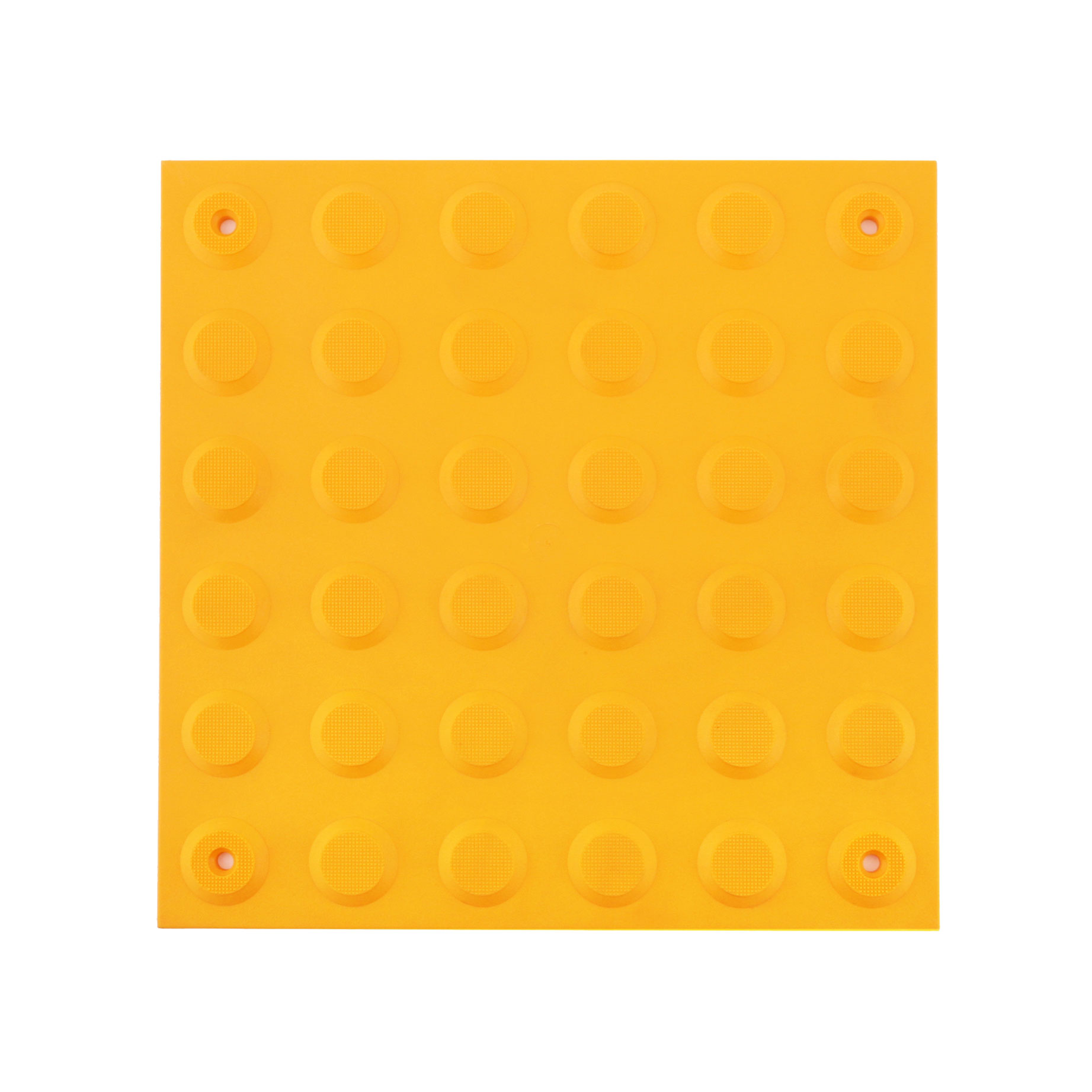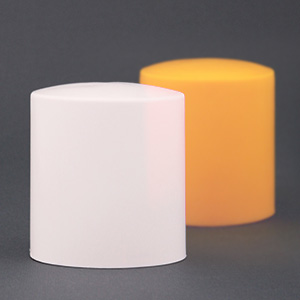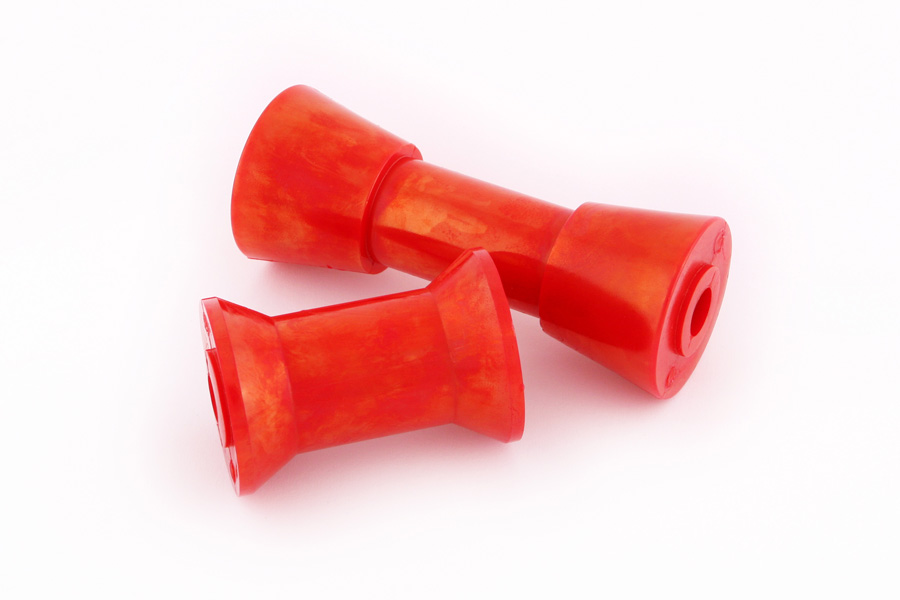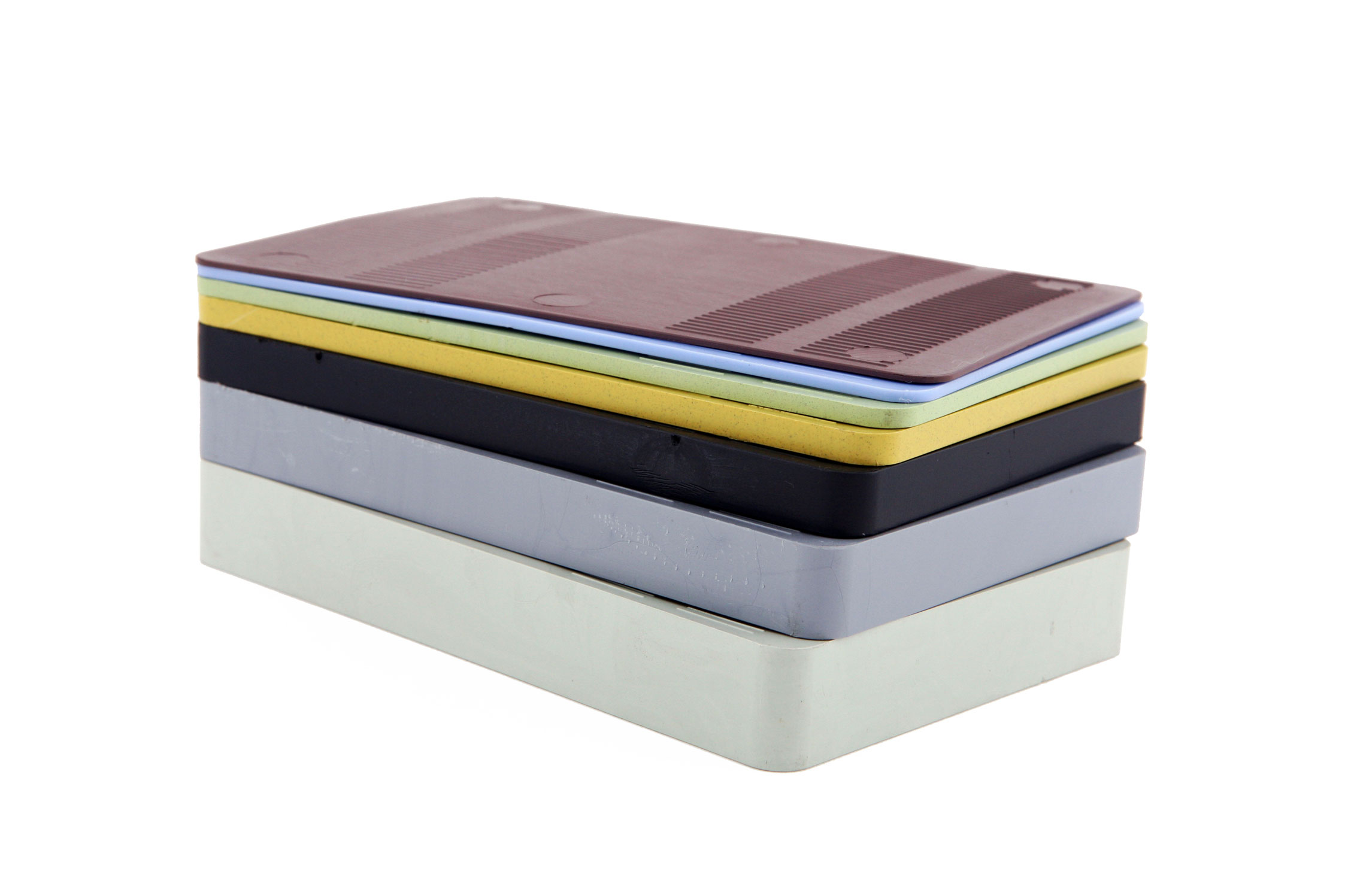
All polymers are not created equal. With this in mind, let’s delve into the properties of high-grade polyurethanes, a plastics family that consumers and industrial clients hold in high esteem. Granted, there are many polyurethane manufacturers out there, but we’re only interested in the process leaders, the PU formulations that are durable, expertly designed, and quality-assured. Performance capabilities are the indicators we’ve chosen here, so let’s see where those indicators lead our investigation.
A hardness rating isn’t a straightforward property. In fact, a hard material can become mechanically weak if this material characteristic isn’t balanced by an intelligently added quantity of ductility. Hard products are brittle. They crack and shatter when exposed to hard knocks. Happily, a quality polyurethane product is classed initially as an elastomer. Fundamentally, a raw PU compound is rubber-like, but curing technology imbues the elastomer with a very solid material profile.
This balanced toughness feature ranks highly on the polyurethane performance chart. The plastic just has a natural gift for delivering equal measures of hardness and impact resistance. Next, high-grade variants sidestep the issues caused by cheap fillers and substandard additives. Imagine superior property extenders, instead, chemical additives that maximise the abrasion handling abilities of an exactingly moulded part. In other words, no matter how hard the plastic part is pushed, it’ll remain like new. The product won’t wear, won’t lose its like-new lustre, and it won’t succumb to the pressures of a stress-filled application.
The raw material uses proprietary additives to inject the curing plastic with predetermined mechanical and material properties. Amongst these properties, elastomeric versatility boosts the moulding stage. This means the amorphous plastics base will assume the most intricate outlines, even if those outlines use thin-walled designs. The curing phase then locks the shape in place. As it assumes that final form, the detailed product architecture locks in the properties of the high-grade polyurethane base. The product is UV stable, strong but not brittle, shock resistant but not overly pliable. Last but not least, this superior plastics family handles oils and greases with casual indifference, so its material base often graces the confines of the dirtiest industrial locales.
As a high-grade plastic, a top-notch quality polyurethane base adds balanced strength to any product. Even if that merchandise is meant for a rugged industrial utilisation area, it’ll just work. Oils and caustic chemicals, jarring impact or abrasive usage, the plastic surface and its underlying plastic base will always deliver these prized properties.
Optimized by NetwizardSEO.com.au

High-visibility REO safety caps are designed to cover the ends of sharp bars. Without these products, those pointed ends could pierce someone’s skin, or perhaps even impale a site worker. It only takes a momentary loss of balance, after all, then a falling individual is stabbed by a spear-like bar. Semi-capsule plastic caps prevent such calamitous events. They’re plainly invaluable site assets, but what other benefits do these products enjoy?
The best way to avoid an accident is to be aware of the injurious nature of any particular work scenario. REO plastic caps aren’t manufactured from matte black polymers, they’re cleverly engineered from brightly hued materials. The yellow, tomato-red, and white plastic toppers look slightly unnatural against the reinforcing bars (REO bar or rebar) posts that they’re blunting, so even a daydreaming visitor can easily spot their outlines.
Tough metal caps are prone to corrosion, but that’s just not the case with an intelligently fabricated polyethylene product. This material absorbs the impact of the pointed posts and provides a dependable parts-blunting feature that won’t fail. Additionally, an inbuilt UV resistance factor guarantees a material build that won’t degrade or become brittle when the sun’s rays beat down harshly.
Coarse REO ends and slim-edged star picket ends are tough to cover. Fortunately, REO safety caps are designed to accommodate many edge types, including star, coarse-rounded, and pointed posts. The tri-edged plastic, the three-sided architecture that’s built into the underside of each cap, is made to accommodate all of these edge profiles and more, so solid bonds are assured.
Work sites and construction areas are rife with potential hazards. Factory environments are no different. This is why we have health and safety regulations. They protect and support the human factor by finding workable solutions to any potential hazard. REO safety caps are one of those cost-effective solutions, an essential one. They comply with all occupational safety guidelines, remove impalement hazards, and clearly mark each pointed threat with bright colours and intense hues.
Reinforcing bars and exposed metal posts need dull-edged plastic covers. Furthermore, these products can’t just be any old piece of pliable material. The material must incorporate the features we’ve listed above. Finally, the caps must fit securely, must advertise their purpose, and absolutely must deliver a material profile that won’t deteriorate, not even when the sun is blasting out the kind of UV rays that would damage most other plastics.
Optimized by NetwizardSEO.com.au

A walk through the ranks of machinery in a plastics manufacturing plant shows each plastic injection machine caught mid-cycle. A glance at the closest machine then demonstrates the power of its screwing mechanism as it forces melted plastic into a receiving cavity. If that currently pliable polymer is to create a fully rendered product, then it needs to be imbued with a specified set of quality-assured properties. It all begins with dimensional accuracy.
The amorphous mass employs a series of heating elements and a screwing mechanism to reach the tooled cavity. Once there, it fills the geometrically detailed outlines of the mould, but that melted polymer will only accurately assume the form of the hollow if it exhibits the correct moldability characteristics. The selected plastic should be viscous initially, but it should also harden only when every cavity contour and eccentric edge has been fully filled. Handily, the processing engineers can measure the melt flow index (MFI) to maintain a reliable dimensional accuracy factor.
A highly repeatable processing cycle is the primary requirement, one that can be inspected during the quality-assurance work, but what about the working backbone of the material? It leaves the factory, but an initial inspection tells us nothing about its long-term prospects. An intelligently sourced material sidesteps such issues by providing materials that exhibit known mechanical properties. ABS (Acrylonitrile butadiene styrene) fits the bill here, for it’s a common thermoplastic, one that exhibits formidable features. ABS is strong and impact resistant, dimensionally stable and process-friendly, so it’s a mainstay in the manufacturing industry. Polycarbonate is another ubiquitous moulding material, one that’s used in countless abrasive applications due to its toughened polymer backbone.
A rugged build is always a handy material attribute, but this feature shouldn’t be overly marketed, not when other important qualities are in demand. A chemically neutral substance is mandated by quite a few clients, especially when food trays and beverage cups experience the injection moulding process. That shock resistant and robust structural build still rates highly due to its popularity in tool boxes and storage-centric housings, but a chemical neutrality feature does become relevant when the food and beverage sector comes calling.
Fortunately, the plastics industry is incredibly customizable. Materials can be selected according to pages of tailored parameters, features that target general mechanical stability or a customized feature. The latter quality-derived feature set includes chemical inertness, temperature resistance, electrical properties, and solvent retardation.
Optimized by NetwizardSEO.com.au

Plastic injection moulding is an ideal way to mass produce a wide variety of plastic products ranging from medical items to automotive products. However, for the companies and toolmakers to satisfy customer demand they must understand the following best plastic qualities and processing information to bring plans into fruition in a quality manner.
Since different plastics can be used in the injection moulding process, companies and toolmakers must understand the specific processing methods and times that work best with each type of plastic. Otherwise, the results will be less than satisfactory.
The toolmakers and companies that deal with plastic injection moulding should understand what the type of plastic is best for each project that they create for you. One example of this is that ABS is a thermoplastic that is suitable for automotive components since it is shock resistant, but it is not suitable for food containers.
Certain plastic injection moulded items may be for medical use, and this at times, calls for a material that personnel can sterilize numerous times each day. Polycarbonate is one such plastic since it can be sterilized through methods such as irradiation, autoclaving and ethylene oxide. It also disinfects easily with isopropyl alcohol. On top of all of this, polycarbonate is impact and heat resistant, biocompatible and durable.
Plastic injection moulding toolmakers and companies both should realise that detailed moulds lead to quality results. Cheap moulds lead to customers being dissatisfied since the results will be tacky and not worth their investment.
Another important part of producing quality plastic items through plastic injection moulding is to understand the minimum wall thickness of a variety of plastics, such as the examples below:
For further details on the best plastic qualities that plastic injection moulding companies and toolmakers should understand, consult with Tip Top Plastics. In addition, feel free to browse through our site to learn about all of the products and services that we can provide to you in a quality, timely manner. We strive to please you will each order that we fill for you.
Optimized by NetwizardSEO.com.au

Plastic shims and packers have a variety of uses ranging from packaging and shipping to construction projects. In the past, these elements were made from wood or metal, but now we understand that there are definite benefits to turning to ones that are made from plastic. Tip Top Plastics offers you what we believe are the top advantages of turning to packers and shims of plastic in place of wood or metal ones.
Since these packers and shims are made from sturdy polypropylene material, they stand up in all sorts of conditions without tearing or breaking. As a result, you can rely on them to perform in a quality manner regardless of the situation. In addition, polypropylene is waterproof and will not absorb moisture in the same manner as wood does or rust the way certain metals do if they are not of the right quality.
Shims and packers of plastic come in thicknesses ranging from 1 mm up to 20 mm to fit a wide assortment of applications. Each thickness is colour coded for easy identification with colours varying from brown to white. In addition, different styles also are on the market today from solid ones to horseshoe-shaped ones.
We provide only quality shims and packers of plastic that comply with all necessary standards of the ASTM D695 and AS 3850-2003 to ensure that they provide adequate compression strength. Our company is required to test our packers and shims to guarantee that they live up to these standards each day.
On top of all the other benefits, you can trim, drill or nail packers and shims easily when they are made from plastic. Being able to perform all these tasks without hassle, expands the usability for these shims and packers.
To purchase quality plastic shims and packers, turn to our company, Tip Top Plastics. We offer a wide variety of these elements in different thicknesses and styles to meet your present and future needs. Browse through our assortment on our website and contact if you have any questions about our products or services. We strive to please with each order that we ship to clients.
Optimized by NetwizardSEO.com.au